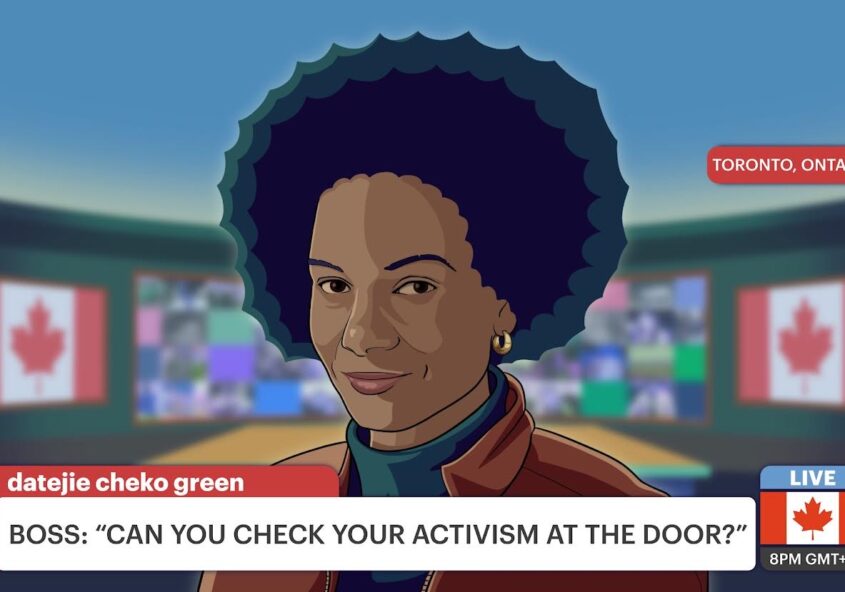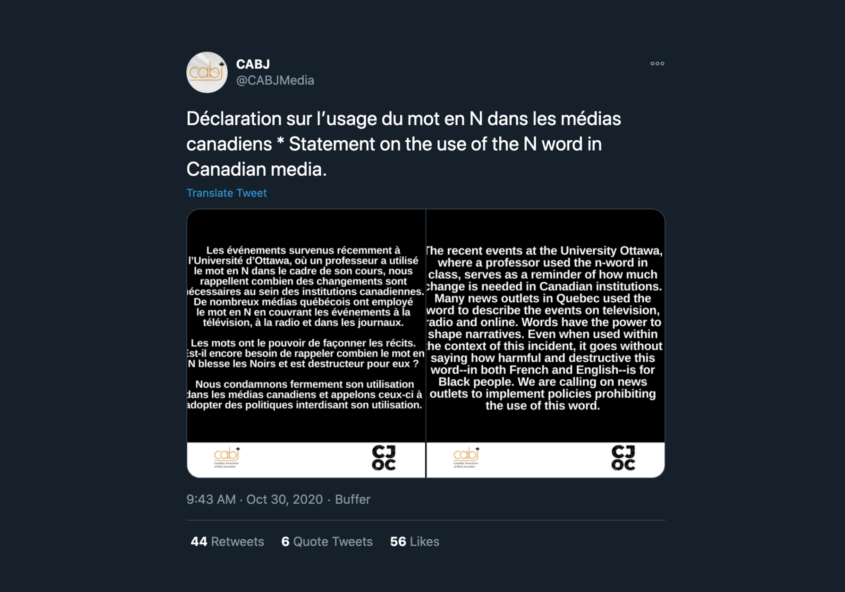Tag / Anti-Black racism
-
‘Can you check your activism at the door?’: Under white supremacy, Black Canadian journalists see their very existence as a radical act
As newsrooms globally respond to accusations of racial bias by focusing on diversity, journalist datejie cheko green looks to her experience in Canada to argue that a fuller reckoning of journalism practices, from recruitment to the daily meeting, is needed to make real change Continue Reading ‘Can you check your activism at the door?’: Under white supremacy, Black Canadian journalists see their very existence as a radical act
-
Black in the jury box: Media is the message
Crime reporting is one of the oldest forms of journalism. It tells us who should be feared and who should be punished for tearing the social fabric. But its often sensational approach has consequences Continue Reading Black in the jury box: Media is the message
-
With the N-word used frequently across Quebec media, CABJ and CJOC are calling for a ban on the slur. Are French newsrooms listening?
Whether or not news leaders’ responses to accounts of systemic racism at English media organizations have been sincere or proactive, a review of French coverage and stated policies suggests Quebec is behind the starting line Continue Reading With the N-word used frequently across Quebec media, CABJ and CJOC are calling for a ban on the slur. Are French newsrooms listening?
-
Capital B
The style guide change for Black adopted unanimously across Canada’s major newsrooms is only a baby step. Systemic patterns of problematic framing on race reporting, sourcing for stories and representation in media organizations all need urgent addressing Continue Reading Capital B
-
Riot or resistance? How media frames unrest in Minneapolis will shape public’s view of protest
Narratives about the Women’s March and anti-Trump protests gave voice to protesters and significantly explored their grievances. Protests about anti-Black racism and Indigenous people’s rights received the least legitimizing coverage, with them more often seen as threatening and violent Continue Reading Riot or resistance? How media frames unrest in Minneapolis will shape public’s view of protest





